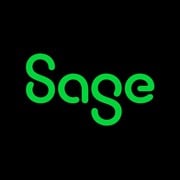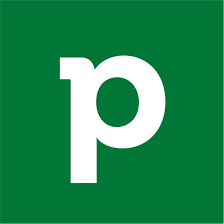The Best Small Business Accounting Software of 2025


Small businesses and solopreneurs depend on the best accounting software to keep track of their income and finances. In fact, at least 64% of businesses already use accounting software to do their own bookkeeping.
Accounting software will help you automate accounting tasks and prevent mistakes commonly associated with manual bookkeeping.
However, it’s important for small business owners to take their time when researching the most comprehensive accounting software. Otherwise, they may end up subscribing to a service that lacks the tools they need or overpaying for features they do not want.
Here’s a list of the best small business accounting software along with their features and pricing information.
What Is the Best Small Business Accounting Software?
These are some of the best accounting software for small business owners.
1. Intuit QuickBooks
Best Overall

Intuit QuickBooks is one of the best—if not the best—accounting software available today.
Customers love the product because of the way it simplifies accounting tasks for small businesses. Users are able to track income and expenses automatically. It also assists with payroll so that employees and contractors are always paid on time.
Intuit QuickBooks does everything you could possibly need from accounting software for small businesses. Plus, it’s so easy to use that even beginners will be able to pick it up without running into any issues. And should they have questions, there are plenty of resources they can turn to.
That’s the reason why Intuit QuickBooks is such a contender for the best accounting software.
Key Features
Here’s what Intuit QuickBooks has to offer:
- Manage Bills: Organize and pay all your bills from one location.
- Track Expenses: Sync your QuickBooks account to your bank account and credit cards. Manage your cash flow statement from within the accounting software.
- Send Invoice: Create and send professional invoices and get paid twice as fast.
- Run Reports: See how well your small business is performing. Customize your own professional reports with business partners.
- Maximize Tax Deductions: Match receipt photos to transactions and sort them into tax categories automatically.
Intuit QuickBooks Pricing

There are four Intuit QuickBooks plans available. Simple Start is $12.50/month, Essentials is $25/month, Plus is $40/month, and Advanced is $90/month.
It should be pointed out that these prices are only for the first three months and will double afterward.
2. FreshBooks
Best for Ease-of-Use

FreshBooks is a small business accounting software that’s known for its ease of use, especially for those who are new to expense tracking.
One of its best accounting features is its professional invoicing. It’s able to show in detail the work an employee has done and how much it cost. All that’s left to do is send it to clients along with payment options (including credit cards). There’s even an option to send payment reminders.
But FreshBooks can do other things as well like keep track of expenses and work progress, collaborate with contractors and clients, process payments, and generate reports.
Key Features
Here’s what you can expect from this online accounting software:
- Invoicing: Customize professional invoices that you can send to clients. Show them what you’ve done and how much it cost.
- Expenses: Keep track of all your expenses using receipt photos, email receipts, and banking details.
- Time Tracking: Log in using the time tracking feature and add it automatically to your invoice.
- Projects: Start a project to collaborate with clients and other collaborators. See what everyone on your team is doing at any given time.
- Reporting: Track every dollar that you’ve spent on your business. View all payments made and see how profitable your small business has become.
FreshBooks Pricing

FreshBooks offers four plans: Lite ($4.50/month), Plus ($7.50/month), Premium ($15/month), and Custom. You can also opt to pay on an annual basis.
3. Sage
Best for Micro Businesses

As far as accounting software goes, Sage might be the best choice for micro businesses. This software specializes in providing solutions for those in the construction, manufacturing, and real estate categories. However, it also offers solutions that are ideal for someone with a micro or small business.
It should be pointed out that Sage sells its features as standalone products. Depending on how you view it, this could be a good thing (since you don’t have to pay for features you need) or a bad deal (because you’ll have to spend more to get all the tools you need).
If you want to get all the features like inventory management and payment integration, you should consider getting Sage 50cloud. But if all you need are accounting tools, Sage Accounting should be enough to get you started.
Key Features
If you’re subscribing to Sage Accounting, here are the features you can expect:
- Invoice: Create and send invoices to clients.
- Tracking: Have a sense of how much you’re owed to make billing easier.
- Send Quotes and Estimates: Send quotes and estimates to clients and other stakeholders.
Sage Accounting Pricing

The Sage Accounting Start plan starts at $10/month while the Sage Accounting plan is $7.50/month for the first six months before jumping to $25/month.
4. Xero
Best for Integrations

Xero is an accounting software for small business owners that currently has over 3 million subscribers. It makes accounting so convenient because it lets users access all their invoices, contacts, and accounts in one place.
Users are able to connect their Xero account to their bank to sync financial information. And it allows them to collaborate with others in real-time.
But what makes Zero stand out are its integrations. The Xero App Store has a lot of tools available that add more functionality to every account. There are 60 apps under the Accounting category alone.
Key Features
Here are some of the features that small business owners can expect from Xero:
- Pay Bills: Track and pay all of your bills on time. See an overview of your cash flow and accounts payable.
- Bank Connection: Connect your Xero account to your bank to set up bank feeds.
- Accept Payments: Get paid twice as fast through Stripe, GoCardless, and other methods.
- Capture Data: Get your documents into Xero automatically.
- Inventory: Keep an eye on your stock using Xero’s inventory software.
Xero Pricing

There are three Xero plans available: Early ($12/month), Growing ($34/month), and Established ($65/month). You can cancel your plan with one month’s notice.
5. Neat
Best for Self-Employed Users

Neat is the best accounting software for self-employed users. It’s able to do the things that freelancers or solopreneurs might need to manage their finances.
This product has accounting software that shows users their cash balance, top expense, and sales data at a single glance. Neat also offers financial document management so users can access receipts, statements, and invoices no matter where they are.
Need to send an invoice? You can also do that with Neat. Users can track their invoices and payments. And since everything is recorded in one place, you can stay organized as your small business generates more sales.
Key Features
Here are some of the features that make Neat a viable option for small businesses:
- Accounting: See metrics that help you understand your income, expenses, top expenses, and more.
- Financial Document Management: Capture your physical accounting documents and store them in the cloud for peace of mind.
- Invoicing: Manage all your invoices and payments. Enable customers to conveniently send money to you.
Neat Pricing

There’s only one Neat pricing available: $24/month billed annually. If you decide to pay monthly, that will bring the cost to $29/month.
6. Zoho Books
Best for Zoho Ecosystem Users

If you’re already invested in the Zoho ecosystem, then there’s no better accounting software for you than Zoho Books. It provides end-to-end accounting services and collaboration tools to help small businesses thrive and prosper.
Even better, Zoho users can integrate with more than 50 of the company’s apps. Through these apps, users can run their businesses no matter where they are.
With Zoho Books, users can create invoices, send payment reminders, create and send purchase orders, keep track of their inventory, sync data from their banks, and more.
Key Features
You can do the following tasks with Zoho Books:
- Receivables and Payables: Create invoices and follow up on pending payments to you. Monitor where your money is going.
- Inventory: Keep an eye on your inventory then set a reorder point to replenish stocks when you’re running low.
- Time Tracking: Know how much time you or your employees are spending on projects and send invoices to customers directly.
- Contacts: Have all of your business contacts in one place and secure their payment information to charge them automatically for recurring transactions.
- Reports: Create profit and loss statements and inventory summary reports.
Zoho Books Pricing

Zoho Books is a free accounting software for businesses with a revenue of less than $50K per month. Otherwise, you’ll have to pay $10/month (billed annually) for the Standard plan, $20/month (billed annually) for the Professional plan, or $30/month (billed annually) for the Premium plan.
7. Kashoo
Best for Startups

Kashoo advertises itself as the world’s simplest accounting software. And its user-friendly layout and design seem to suggest as much.
If you only need to send invoices, accept payments, send estimates, and track your income and clients, then you can try Kashoo’s free accounting software called TrulySmall Invoices. But if you need more features like tracking sales tax, you should go for TrulySmall Accounting. If you need every available tool, that’s when you switch to the Kashoo plan.
The TrulySmall plans make Kashoo ideal for startups because these accounting solutions are really affordable.
Key Features
Here’s what the Kashoo software for small businesses has to offer:
- Data Entry: Get rid of redundant tasks like data entry and manual imports. Organize a year’s worth of transactions in under 30 minutes.
- Receipts: Upload your receipts and store all of them within Kashoo.
- Payments: Set up your payments so all client payments go automatically to your bank account.
- Invoice: Monitor all your invoice activity and keep track of which clients have paid or not.
Kashoo Pricing

Kashoo TrulySmall Invoices start at $0/month. TrulySmall Accounting is $20/month. And Kashoo is $30/month.
Small Business Accounting Software Buyer’s Guide
Do you need help choosing the right accounting solution? Don’t worry. We have you covered.
What Is Small Business Accounting Software?
Accounting software makes it easier for small businesses to manage and keep track of their expenses and receivables.
Typically, a business owner must hire a bookkeeper to do these tasks. But by using accounting software, small businesses can get around that and manage their finances by themselves — thus saving them from having to pay more employees.
What Are the Benefits of Small Business Accounting Software?
Accounting software makes it possible for small business owners to automate tasks that usually take up a lot of time.
These tasks include preparing invoices, receiving payments from clients, monitoring payments made, reordering inventory, and reporting.
Good accounting software should also be able to help its users understand the state of their business finances at a glance.
There are also small business accounting tools that give small- to medium-sized businesses the option to create projects and implement time tracking to monitor their employees’ activities. This is especially useful when it’s time to work on payroll.
What to Look for in a Small Business Accounting Software?
Here’s what to keep an eye on while looking for bookkeeping software.
- Accounting Features: Go over all the listed features that the accounting software provides. Make sure it has everything you need.
- Price: Small businesses have less budget to work with. Find an accounting software that you can afford but can help you scale as needed.
- Limitations: Find accounting software with few limitations. Look for terms like unlimited users, unlimited invoices, inventory tracking, and similar benefits.
- Customer Support: You want to work with accounting software with excellent customer relationship management.
Small Business Accounting Software FAQ
What software do most small businesses use?
A small business might use an accounting tool like Kashoo, Neat, or Sage. Some organizations also use FreshBooks or Intuit QuickBooks Online.
Can a small business do its own accounting?
Certainly. With the right software, anyone can do accounting tasks like income and expense tracking, financial reporting, and more.
Is there affordable accounting software?
Yes. There are even companies like Kashoo that offer a free version of its software for anyone who’d like to give it a try.
Can I use Excel for bookkeeping?
While you can use Excel to keep a record of your financial data, it can’t automate bookkeeping tasks the same way as the best value accounting software can.
Choosing the Best Small Business Accounting Software
It’s important for small businesses to look for the next overall accounting software that they can afford.
While it may seem like an additional cost, accounting tools will actually save you from making costly mistakes and help you run your operations efficiently. It automates tasks that would otherwise take up most of your time like handling bank transactions and recurring invoices.
The right accounting solution will save you from headaches that you might experience down the line.
Here’s a quick summary of the bookkeeping software mentioned on this list:
- Intuit QuickBooks: Choose this if you want the best overall software in this list.
- FreshBooks: If you’re new to accounting software, this is the best option for you.
- Sage: Sage is great for micro-businesses.
- Neat: Use Neat if you’re a self-employed individual.
- Kashoo: Kashoo is ideal for startup businesses.
Did we miss your favorite accounting tool? Comment down below if you have other suggestions.
Related Products






